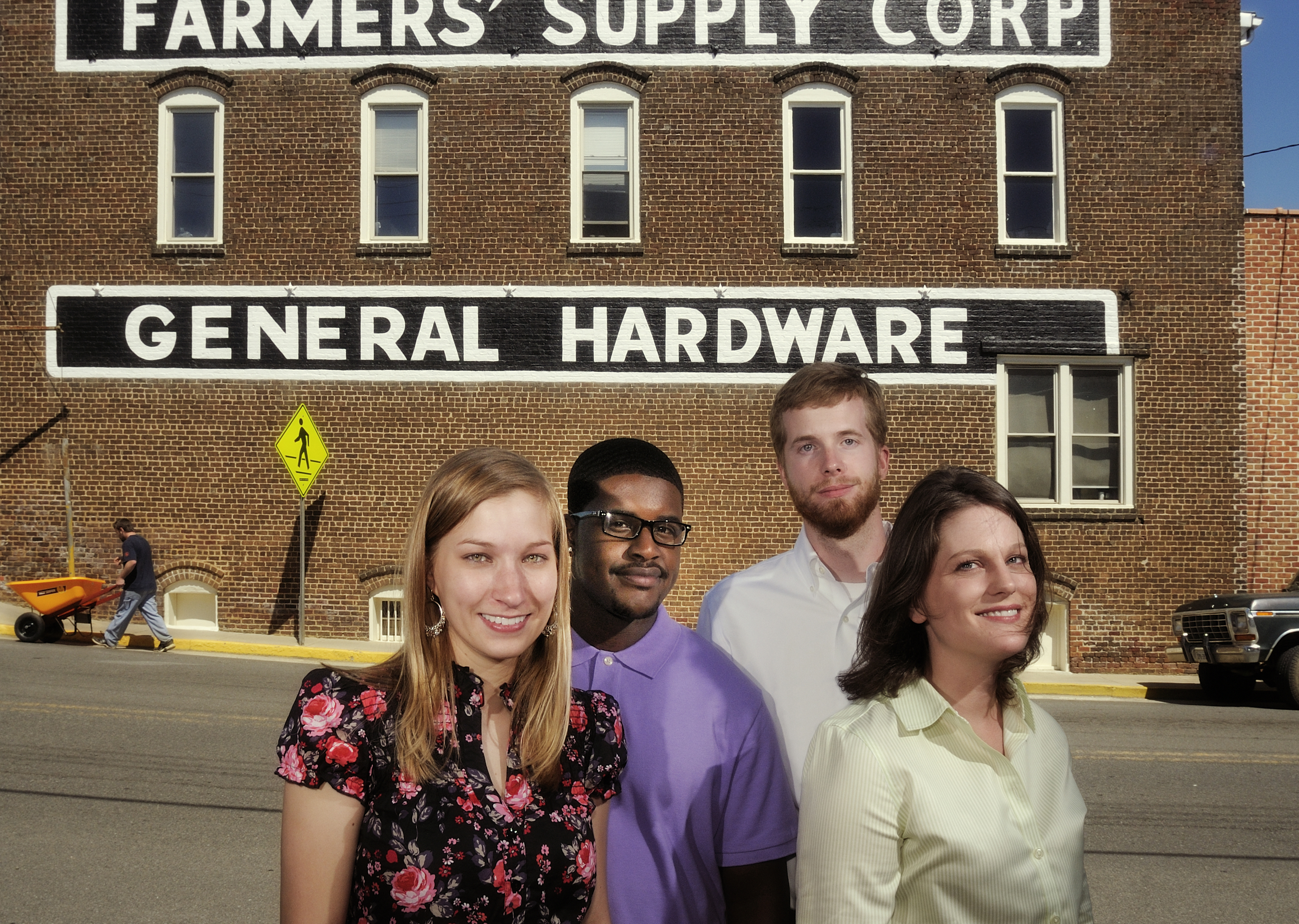Virginia Tech graduate students suggest green ideas for a small community

Like many small communities, Floyd – though redolent with small-town flavor and rich with a sense of place – shares a challenge with other Virginia cities and counties. How to create vibrancy in the economy?
A community off the Blue Ridge Parkway, Floyd sees more than half of the working population commuting outside the county to jobs.
Enter a group of skilled graduate students from Virginia Tech. The Floyd project became their primary work assignment in a class called Economic Development Studio @ Virginia Tech. The students proposed new green business opportunities for government economic developers to support – opportunities that entrepreneurs could nurture and adopt.
“Our Economic Development Studio class looks at real-world problems and helps communities solve them,” says Mel Jones of Columbia, S.C. She is working toward two master’s degrees: one in urban and regional planning from the College of Architecture and Urban Studies and the other in agricultural applied economics from the College of Agriculture and Life Sciences.
The students learned through conversations with community leaders that no “smokestack chasing” would be allowed. The community preferred to draw on its own strengths to achieve sustainability.
The class of eight students began with a market analysis of Floyd County's assets and then worked to define good-fit business opportunities. They came up with four green business ideas:
- Wood pellet manufacturing. Wood pellets are made from sawdust, wood shavings, and wood chips. They are primarily used as home-heating fuel in wood-burning stoves.
- A micro dairy. A micro dairy is a small-scale dairy that could produce yogurt, butter, and bottled milk. The huge appeal of this idea is its support of Floyd’s dairy farmers, some of whom are teetering on the brink of survival. (The dairy would avoid competing with local makers of artisan cheeses.)
- Flooring and countertops manufacturing. Using reclaimed glass and other recycled materials, Floyd’s artisans could design and create hand-crafted products that would be marketable as elements of high-end home décor.
- A “sustainable living” training-and-education center. While such a center might need to be structured as a nonprofit organization, it could help retrain displaced manufacturing workers, align well with current tourism efforts, and entice more people to get into farming.
John Provo, interim director of Virginia Tech’s Office of Economic Development, who teaches the studio class, says, “The businesses they proposed were required to promote economic development, reduce environmental impacts, and improve social well-being. These were all things the people wanted.”
Like others in Floyd’s creative community, artist Laurelsong Cook Stengl, a resident for 21 years, yearns for more self-sufficiency in the economy. “Encouraging people to buy locally is good, so the money stays in the city, stays in the county.”
“I was so impressed with the students I met with,” says Lydeana Martin. Martin, who earned an M.B.A. from Virginia Tech in 1994 and a master's in urban and regional planning in 2000, is Floyd County’s community and economic development director. “They were serious and intense about it being a real project. They weren’t treating it as just an academic exercise.”
In fact, the study has led to concrete “next steps” for the county. Martin says two applications for grants to underwrite a dairy-processing facility are under review – “one with the Appalachian Regional Commission and one with the Tobacco Commission. Keep your fingers crossed!”
According to Provo, the students’ work is part of a solid foundation for the town’s economic future. “And what’s cool is we can replicate this process for other communities.”

Graduate students studying the economy in Floyd
Students, from left, are Ashley DeBiase, Thomas Moore, Will Drake, and Mel Jones. DeBiase, who graduated this past spring with a dual master's in public administration and urban and regional planning, now works in the Chesterfield County management and budget office. Moore, of Norfolk, Va., graduated this past spring with a master's degree in urban affairs and planning from the College of Architecture and Urban Studies. Drake, who also graduated with a master's in urban and regional planning, now works for Design Nine in Blacksburg.






